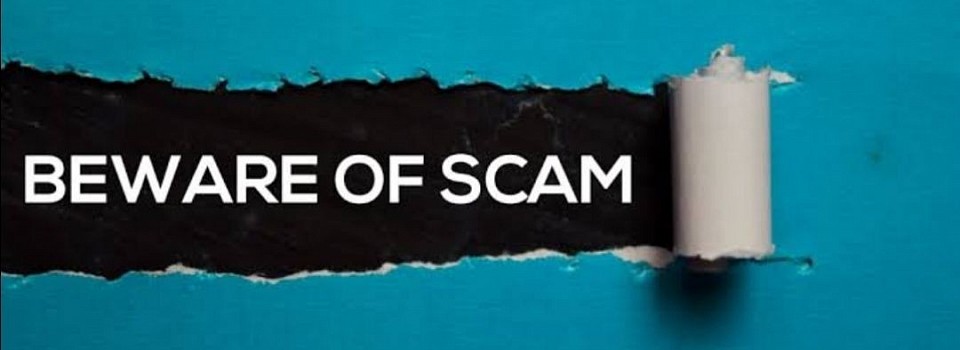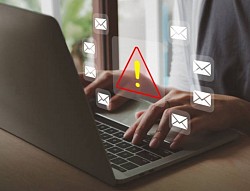Scam / Fraud Investigation
A private investigator can be instrumental in uncovering the details of a scam
Especially when dealing with financial fraud or online scams. They can gather evidence, trace money, and identify the individuals involved in a scam. If you suspect you've been scammed, a private investigator can help you gather the necessary information for legal action or to recover your funds.
While often used interchangeably, "scam" and "fraud" have distinct meanings.
Fraud is a broader term encompassing various types of deceptive acts, while a scam is a more specific type of fraud where someone is tricked into willingly providing money or information.
Here's a more detailed breakdown:
FRAUD:
• Definition:
Fraud is a general term for any deceptive act used to obtain a financial or other benefit. It often involves unauthorized access to personal information or financial resources.
• Examples:
Identity theft, credit card fraud, financial statement fraud, embezzlement.
• Victim's Role:
Fraud can occur without the victim's awareness or consent, as the criminal obtains access to their information or funds.
• Legal Consequences:
Fraud is a serious crime, and perpetrators may face imprisonment, restitution, and fines.
SCAM:
• Definition:
A scam is a type of fraud where someone is tricked into willingly providing money, personal information, or other valuable assets. Scammers often use deception, pressure, or emotional manipulation to achieve their goals.
• Examples:
Phishing emails, romance scams, investment scams, fake tech support, online shopping scams, and lottery scams.
• Victim's Role:
Scams require the victim's active participation and consent to share information or money.
• Legal Consequences:
Scams are also crimes, and perpetrators can face penalties depending on the severity of the scam and the amount of money involved.
In essence, a scam is a specific method of fraud, while fraud is a broader term that encompasses various deceptive practices, including scams.
How a Private Investigator Can Help with Scam Investigations:
• Evidence Gathering:
Private investigators can gather evidence, such as financial records, digital footprints, and witness statements, to prove the existence of a scam.
• Tracking Scammers:
They can track the movement of funds and identify the individuals or entities behind the scam.
• Financial Audits:
If you've experienced a financial loss due to a scam, a private investigator can conduct a financial audit to identify the extent of the damage and potential avenues for recovery.
• Surveillance and Monitoring:
Surveillance can be employed to observe the activities of potential scammers and gather evidence of their fraudulent behavior.
• Digital Forensics:
In cases of cyber fraud or online scams, digital forensics can be used to analyze data, identify malicious software, and trace the digital footprints of scammers.
• Expert Testimony:
A private investigator can provide expert testimony in court, helping to present your case and build a stronger argument against the scammers.
Why Consider a Private Investigator for a Scam Investigation:
• Expertise:
Private investigators have the skills and resources to conduct thorough investigations and gather the necessary evidence.
• Objectivity:
They provide an unbiased perspective, ensuring that your case is investigated fairly and objectively.
• Confidentiality:
Private investigators are accustomed to handling sensitive information and maintaining confidentiality.
• Legal Support:
They can help you gather evidence for legal action, such as filing a lawsuit or obtaining a restraining order.
• Peace of Mind:
Knowing that you're working with a professional to uncover the truth and bring justice to your situation can provide you with peace of mind.
Important Considerations:
• Legal Advice:
It's always advisable to consult with a lawyer before engaging a private investigator, especially if you intend to pursue legal action.
• Due Diligence:
Research and choose a reputable and licensed private investigator to ensure the quality of their services.
• Clear Expectations:
Have a clear understanding of what the private investigator can and cannot do in your case.
Police impersonation scams involve criminals posing as law enforcement officers
To deceive individuals into sharing personal or financial information, often under the guise of an investigation or a pending legal issue. Scammers may use threats, intimidation, or even manipulate caller ID to appear legitimate. They might demand money to "resolve" a problem, or pressure victims into providing information like bank account details.
Here's a more detailed look at how these scams work:
How they operate:
• Unsolicited contact:
Scammers will often initiate contact, claiming to be from the police, often without prior notice or investigation.
• Threats and intimidation:
They use fear tactics, such as threats of arrest or legal action, to manipulate victims.
• Demand for money:
A legitimate police officer will never ask for money to resolve a legal issue. If a caller insists on immediate payment, it's a red flag.
• Suspicious communication channels:
Legitimate police officers will rarely use platforms like WhatsApp to inform you of an arrest, and they will typically call from a landline.
• Manipulated Caller ID:
Scammers can manipulate their caller ID to make it appear as if they are calling from the police station, even if it's not.
Romance scams are deceptive schemes
Where fraudsters impersonate individuals online to gain trust and affection, ultimately to extract money or other valuables from their victims. Scammers often create fake profiles and relationships, building up emotional connections before requesting financial assistance, investments, or other forms of payment. They may claim to be in a crisis, need travel funds, or offer false investment opportunities to convince victims to send money, which is rarely, if ever, returned.
Key characteristics of romance scams:
• False Identity:
Scammers use fake profiles, pictures, and personal information to impersonate individuals.
• Emotional Manipulation:
They build up an emotional connection with the victim, playing on their desire for love and companionship.
• Financial Requests:
Once trust is established, they ask for money, either for personal needs, business investments, or travel.
• Hesitancy to Meet In Person:
Scammers often avoid video or phone calls and refuse to meet face-to-face.
• Unexplained Circumstances:
They may have stories about being overseas, sick, or in crisis, requiring immediate financial help.
• Pressure to Send Money:
They may use emotional blackmail or threats to pressure victims into sending money.
How to protect yourself from romance scams:
• Be wary of online strangers:
Approach new connections with caution, especially if they are eager to share personal details or become emotionally intimate quickly.
• Verify information:
Cross-reference information with other sources, and be skeptical if details are inconsistent or the profile appears generic.
• Don't send money:
Never send money to someone you haven't met in person or verified their identity through other means.
• Use caution with online dating apps:
Be mindful of who you're connecting with and don't share excessive personal information.
• Report suspicious activity:
If you suspect you've been targeted, report it to the relevant authorities and your bank.
Here's a more detailed look at common scams and how to avoid them:
Auto auction scams involve fraudulent schemes targeting potential buyers or sellers, often involving fake vehicles, fraudulent transactions, or deceptive practices. To protect yourself, it's crucial to verify the legitimacy of the auction, be wary of unrealistic prices or offers, and avoid sharing personal or financial information outside of established channels.
Types of Auto Auction Scams:
• Fake Vehicles:
Fraudsters may advertise vehicles that don't exist or have been misrepresented.
• Fraudulent Transactions:
Scammers may attempt to trick buyers into paying for a vehicle without receiving it or with faulty documentation.
• High-Pressure Sales Tactics:
Some auction houses might use pressure or misinformation to get buyers to bid higher or agree to unfavorable terms.
• Third-Party Scams:
Fraudsters might impersonate legitimate auction houses or offer services (like guarantees or financing) that don't exist or are scams.
How to Protect Yourself:
• Verify the Auction's Legitimacy:
Always check the auction house's official website and ensure it's a registered, reputable entity.
• Be Skeptical of "Too Good to Be True" Offers:
If the price or vehicle details seem too good to be true, it's likely a scam.
• Don't Share Personal Information:
Avoid sharing personal information like banking details or Social Security numbers with anyone outside of established channels.
• Check for Red Flags:
Be wary of sellers who request payment outside of the auction platform, provide vague information, or are hesitant to provide documentation.
• Use a Reputable Escrow Service:
Consider using an escrow service to ensure that payment is released only after the vehicle and its title are verified.
• Trust Your Instincts:
If you feel uncomfortable or suspicious, it's best to proceed with caution or avoid the transaction altogether.
• Report Suspicious Activity:
If you encounter a scam, report it to the auction platform and relevant authorities.
• Seek Advice from Experts:
Consult with a car dealer or lawyer if you have any doubts about a transaction or auction.
By staying alert and taking these precautions, you can significantly reduce your risk of falling victim to an auto auction scam.















